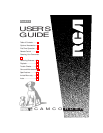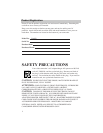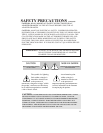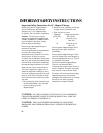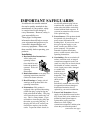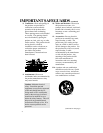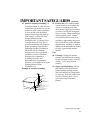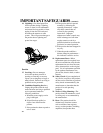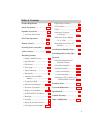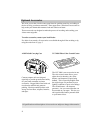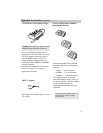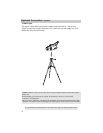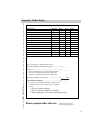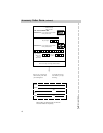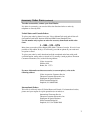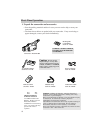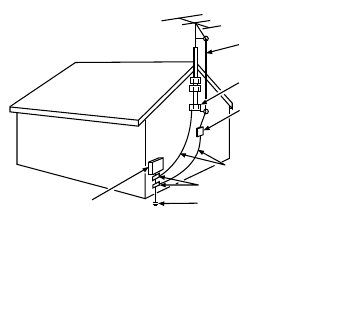
vi
12. Outdoor Antenna Grounding—If
an outside antenna or cable system is
connected to the product, be sure the
antenna or cable system is grounded
so as to provide some protection
against voltage surges and built-up
static charges. Article 810 of the
National Electrical Code,
ANSI/NFPA No. 70 (Section 54 of
Canadian Electrical Code, Part 1)
provides information with respect to
proper grounding of the mast and
supporting structure, grounding of
the lead-in wire to an antenna-
discharge unit, size of grounding
conductors, location of antenna-
discharge unit, connection to
grounding electrodes, and
requirements for the grounding
electrode. See example below as per
National Electrical Code,
ANSI/NFPA 70.
Example of Antenna Grounding
13. Power Lines—An outside antenna
system should not be located in the
vicinity of overhead power lines,
other electric light or power circuits,
or where it can fall into such power
lines or circuits. When installing an
outside antenna system, extreme
care should be taken to keep from
touching or approaching such power
lines or circuits as contact with them
might be fatal. Installing an outdoor
antenna can be hazardous and should
be left to a professional antenna
installer.
Use
14. Cleaning—Unplug this product
from the wall outlet before cleaning.
Do not use liquid cleaners or aerosol
cleaners. Use a damp cloth for
cleaning.
15. Object and Liquid Entry—Never
push objects of any kind into this
product through openings as they
may touch dangerous voltage points
or “short-out” parts that could result
in a fire or electric shock. Never
spill liquid of any kind on the
product.
IMPORTANT SAFEGUARDS (continued)
ANTENNA
LEAD IN
WIRE
GROUND CLAMP
GROUNDING CONDUCTORS
(NEC SECTION 810-21)
GROUND CLAMPS
POWER SERVICE GROUNDING
ELECTRODE SYSTEM
(NEC ART 250, PART H)
ELECTRIC SERVICE
EQUIPMENT
ANTENNA
DISCHARGE UNIT
(NEC SECTION 810-20)
(continued on next page)



